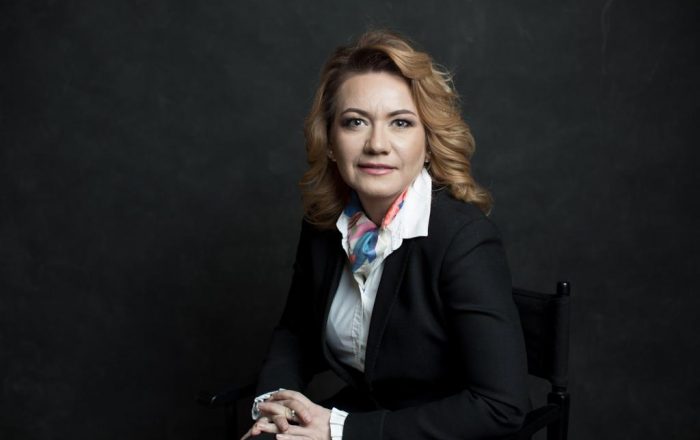November 4, 2020, Kyiv – Olga Bielkova, Director on Government and International Affairs of Gas TSO of Ukraine (GTSOU) commented on the current stage of implementation of the EU gas market rules by the company at the 6th meeting on Energy, Transport, Environment, Climate Action and Civil Protection of EU-Ukraine sub-committee on economic and other sector cooperation.
In her comments, Olga Bielkova emphasized that Ukraine has made an important step forward, towards a greater integration with the European gas market, as we continue to implement necessary rules and standards. Gas TSO of Ukraine is both the driver and an integral part of those efforts.
Ukraine has fulfilled an obligation on unbundling of Gas TSO from vertically integrated company, Naftogaz, in accordance with Directive 2009/73/EC requirements. Starting from 1 October 2020, GTSOU has been allocating capacity at cross-border interconnection points (IPs) exclusively through auctions, including daily and within-day capacity. By enhancing cooperation with neighboring countries, GTSOU has signed interconnection agreements with all TSO’s on the borders of the country (Poland, Slovakia, Hungary, Romania, Moldova and Russia). The company has also established virtual interconnection points (VIPs) on the border with Hungary – “Bereg” and on the border with Poland – “GCP GAZ-SYSTEM/UA TSO”.
“We are moving forward towards a full adoption of EU rules at the highest speed,” added Ms Bielkova, outlining the key achievements in the sphere of EU-Ukraine regulatory harmonization that GTSOU has been pursuing since its founding.
Olga Bielkova has also highlighted the key steps, which are needed to foster greater cooperation with EU countries in accordance with the principles of the 3-rd Energy Package.
In terms of Ukraine-Poland relationship, there is an opportunity for transit of NLG. This will require allocation of firm capacity for gas transportation from the LNG terminal in Swinoujscie to Ukraine, where the trading companies can further leverage access to the Ukrainian underground gas storage.
In terms of cooperation with Hungary creation of firm capacity for gas transportation in direction from Hungary to Ukraine will allow gas transportation to Ukraine from the LNG terminal located on the island of Krk, Croatia.
In terms of cooperation with Slovakia, the necessary steps are introduction of virtual interconnection point and capacity allocation at auctions on the border with Slovakia as a part of implementation of EU Regulation 2017/459 (NC CAM) requirements. Introduction of VIP will facilitate flexible cross-bordered gas trade and will increase not only the transmission volume, but also competition in the gas markets of both countries. It is convenient and profitable mechanism for the market, which will lead to higher liquidity, thus enhancing fair price forming.
As for the capacity allocation at the auctions, it is fair and transparent mechanism for the market development, which will have a positive economic effect for all parties.
In effort to enhance cooperation with Romania, the GTSOU considers the next step is signing interconnection agreements for the new interconnection points. Ukraine and Romania have signed only one interconnection agreement for IP Isaccea-Orlivka-1. To further develop gas markets of both countries, Ukraine proposes to sign 4 more agreements for additional interconnection points, that exist between Ukraine and Romania. They could be potentially used for natural gas transportation through the Trans-Balkan Corridor.
“Implementation of all these steps according to EU practices and regulations will allow diversifying the sources of gas imports to Ukraine and strengthening the country’s energy security. It is also very beneficial for the market players on both sides of the market,” added Ms Bielkova.
She also reassured colleagues from the EU, in response to their question regarding financial stability of GTSOU, that this is the top priority and concern for management. The issue of bad debt by DSOs is being addressed through the court system and a new preventive solution of so-called “special accounts” for DSOs payments to GTSOU introduction is being considered by the Parliament of Ukraine (draft bill 3800). GTSOU hopes to get the legislation in place to prevent further accumulation of the debt by the end of the year.
